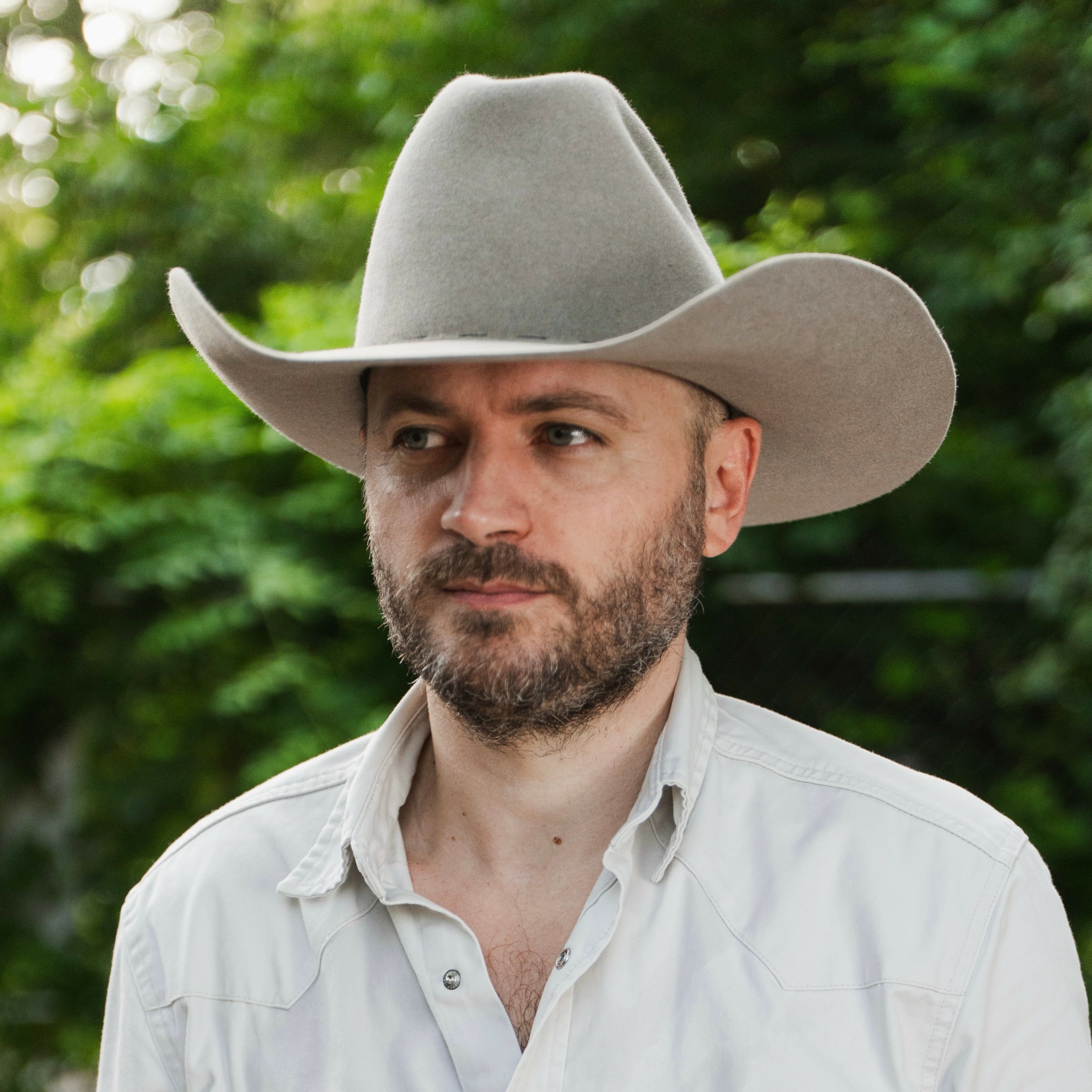We were lucky to catch up with Matt Steinfeld recently and have shared our conversation below.
Matt, appreciate you joining us today. If you could go back in time do you wish you had started your creative career sooner or later?
That’s a tough question to answer. I think anyone who figures out what they want early on and acts on it has the advantage of time. That said, when you’re young, there often isn’t much to say, and if there is, it’s usually not that much. I’m actually grateful that I started writing and recording later in life. It gave me time to live, to gain experiences worth writing about. I’ve always loved music and played instruments, but I never really considered songwriting as something I could do. I didn’t realize you could just record yourself, book a studio, or release your own music. I thought that was something only labels did, and for a long time, it was. But laptops and home recording changed everything. Once I discovered I could build a home studio, everything shifted. It was off to the races. I do sometimes wish I had started earlier, but that usually comes from the belief that more time means more success or from the idea that there’s an age limit to achieving something. But the truth is, I might never have gotten into music at all if I hadn’t spent those earlier years doing other things. I try not to dwell on what I can’t control. Wishing things were different isn’t really a path forward.
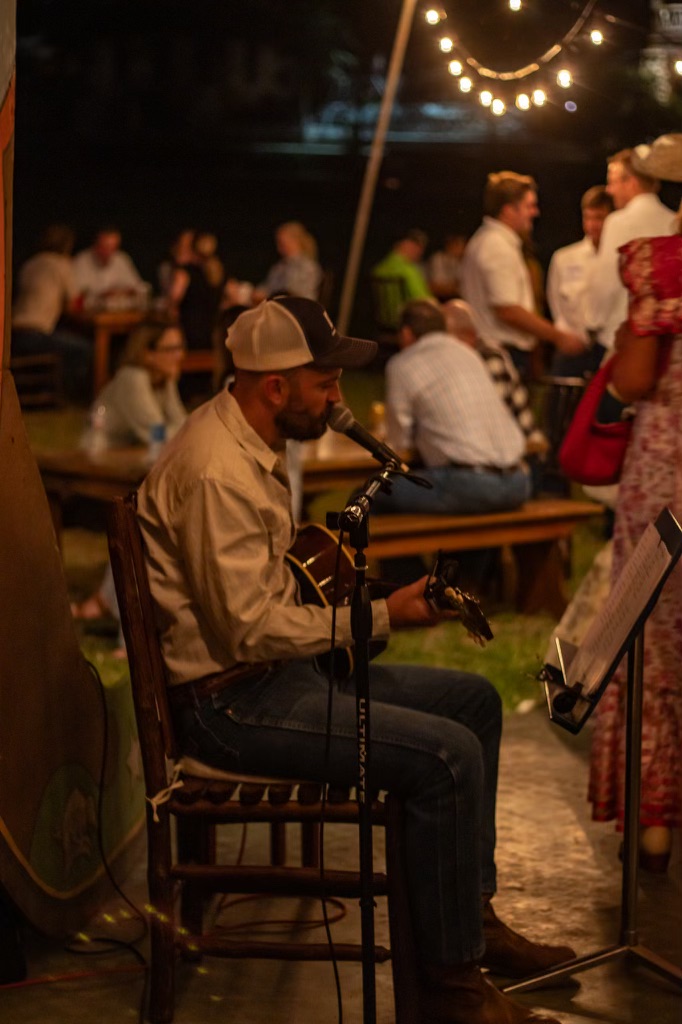
As always, we appreciate you sharing your insights and we’ve got a few more questions for you, but before we get to all of that can you take a minute to introduce yourself and give our readers some of your back background and context?
I’ve always played musical instruments and sung. I started out recording and producing music for other people. At first, I was hesitant to record myself and never really saw it as something I’d pursue seriously. Then I began writing songs and making demos, and I enjoyed it so much that I just kept going. I finished my first project alone and that confirmed I could do it better with help. That eventually led to busking on the street and playing small gigs in bars and restaurants.
I love all kinds of music, but country, as a genre, has always been a traditional thing for me. As the genre leans more toward pop and hip hop influences, I’ve stayed drawn to more organic sounds: stand-up bass, pedal steel, fiddle, acoustic guitar. These elements might not be as commercial or important to a mainstream audience, but reaching the widest audience has never been my goal. I’m not interested in being the biggest act in the music business. I’m interested in being the best artist I can be. I make all kinds of music but country is special because it emphasizes story and lyric, real meaning. At least it can and did historically. It’s the kind of music that best represents my melody and lyric. A lot of pop music makes no sense lyrically but is still great because of a groove or cadence. My music is not that. It’s not for others, really. It’s for me. If others connect with it too, that’s a bonus. I have done it long enough with no one listening. I would be doing this anyway, even if no one did.
What makes me most proud is that the music is genuine. I’m not pretending to be a cowboy or farmer. I’m not pretending to be anything to be popular. If anything, I know I’m not commercial. And I’m not interested in compromise. I know what I want and I am not interested at all in how others think I should make things. I think these songs have legs though because they are stories. And when done well, stories connect. A lot of my music comes from pain and real problems that I still struggle with. Because of that, I never have to second-guess what I say or sing about because it all comes from an honest place. I’m willing to risk obscurity for the sake of authenticity and staying true to what I believe in.
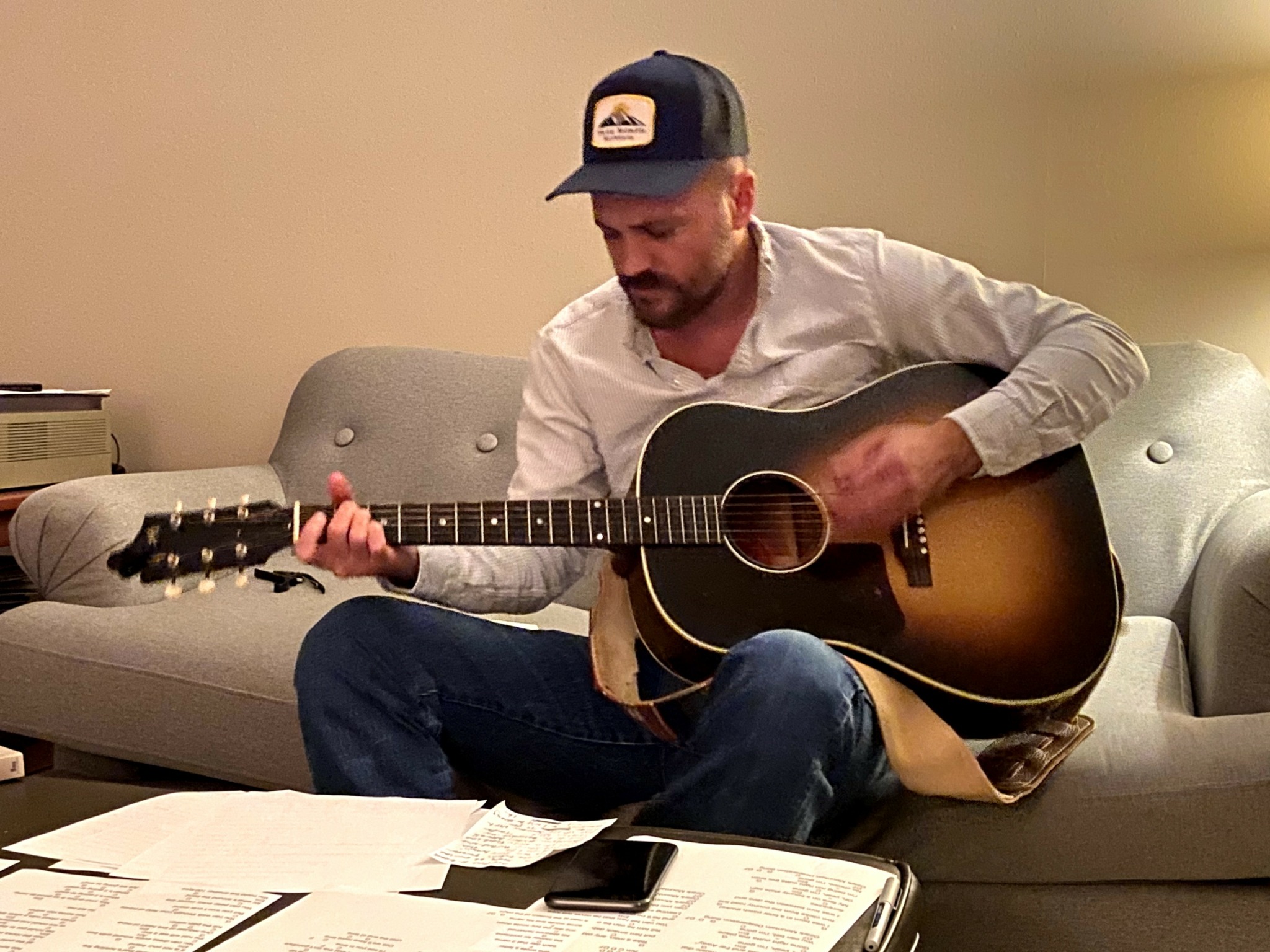
Do you think there is something that non-creatives might struggle to understand about your journey as a creative? Maybe you can shed some light?
I had to learn the hard lesson that most people just don’t care. Starting out, making records or playing bars, there is an assumption or expectation that others will care. That comes from a genuine place where an artist is naive and delusional enough to put themselves out there. It means something to me but that doesn’t mean others are into it. Then there is silence. Anyone who started anything like a business or art project (and to be clear a music career is both), there is an early and abrupt devastation when one learns that no one cares as much as the creator. No one is going to put me on or give me some shot or opportunity just because I showed up, made some songs and think they are great. Showing up with talent and hard work is the baseline. That’s tough to learn. The world is huge and there are so many talented people for whatever reason don’t make it. A lot of people with unreal talent quit because it was too hard or there wasn’t immediate success. All that to say, I’ve learned the hard way that all of this goes back to the question “Why?”. If you knew it would fail, what would you do anyway? For me it’s this. I just thought it would be easier to get heard when I started. But since that isn’t the goal, I am going to make music regardless of what happens. Quitting is based on results. I am not concerned with the results, so I am free to do what I want and continue on with my projects. It’s not a product to me. And since I care the most about it, and am in complete control of my creativity, like owning my masters and publishing, I can play the long game. This whole idea of getting discovered and gong viral is not a strategy. Some people do that, and it’s incredible, but most people just slug it out until they are undeniable or they quit. To stay in it, though, all unrealistic dreams must be killed and replaced with grit and consistency. That was really hard for me to learn. That being said, when I realized it was up to me, it became freeing.
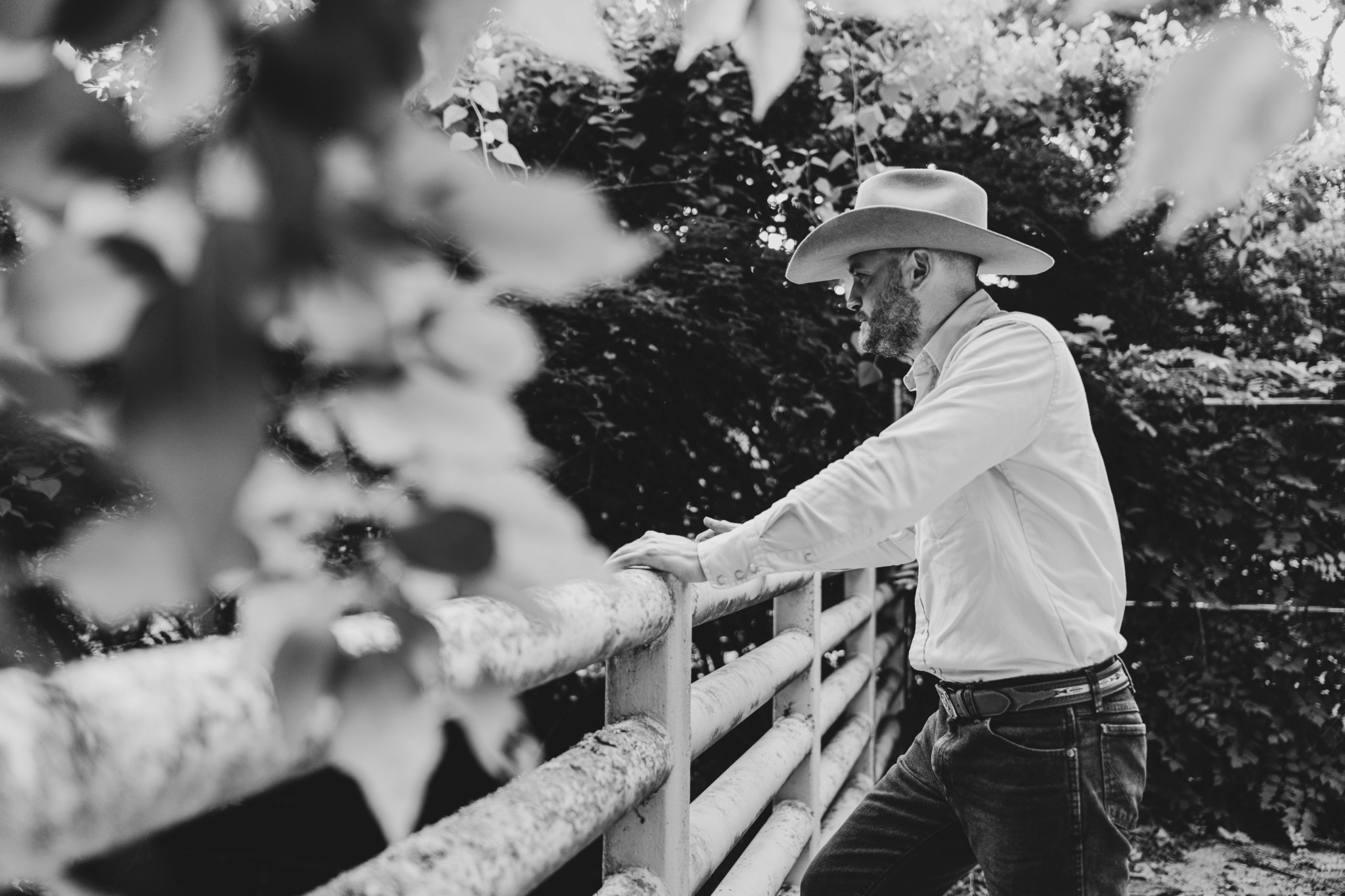
What do you think is the goal or mission that drives your creative journey?
I have a compulsion to document my experience. Writing songs, the act itself, is the goal, not a means to an end. It is self-indulgent and there is a desire to be heard, sure. That sounds extremely prideful and self-focused but I don’t mean it that way. I really just want people to know me and to convey or express what others cannot, but through music. There are a lot of universal experiences that people face: growing up, rejection, failure, victory, love, relationships, change, loneliness, fear, anger, gratitude. Nearly all of my songs are expressions of universal experiences. A lot of people need help processing their story. Some just don’t know how to express it, then they hear a song and it clicks. I have a natural tendency to ruminate and philosophize my own experiences to the point that I want others to join me with their own story. My songs provide a backdrop for people to fill in the blanks of their lives and experience my music as if I was singing their story. That connection is important to me. That potentially helps others. If I can do that in a tasteful, elegant way, even better. That is what I love about it. It is damn hard to do but it is so fulfilling when I get it right. Even better if it connects with others. I could write bangers and try to get people to shake their ass but I would rather them hear a song of mine and think “Damn, I really get that” or “I am never going to see this thing the same”
Contact Info:
- Instagram: @mattsteinfeldmusic
- Youtube: @mattsteinfeld
- Soundcloud: https://soundcloud.com/user-152929463
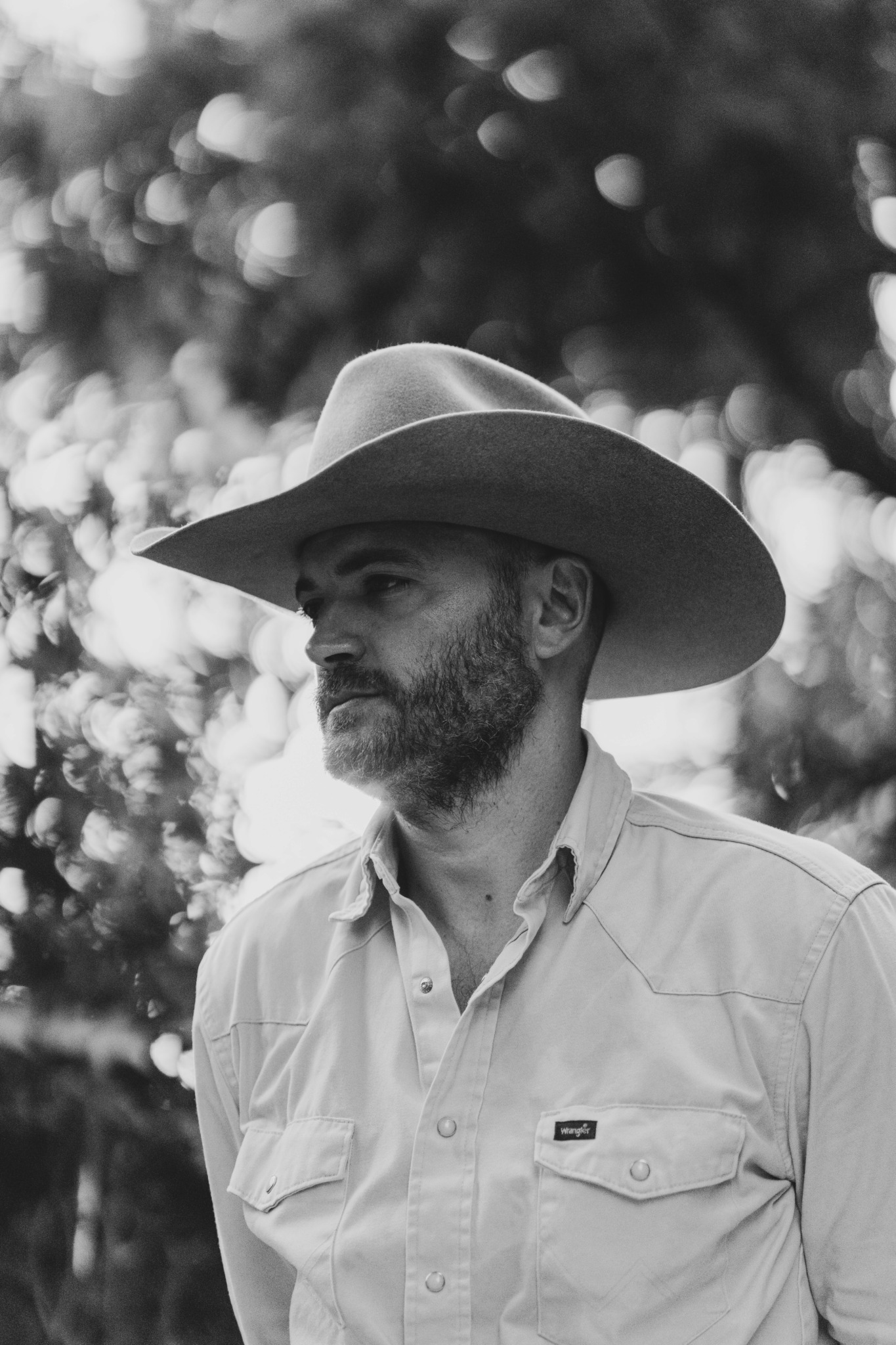
Image Credits
Caleb Wiley


